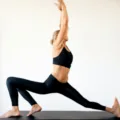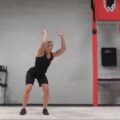Having good hip mobility is essential for overall health and wellbeing. It allows us to move freely and without pain while carrying out daily activities. If hip mobility is limited, it can negatively impact posture, movement, and comfort.
What is Hip Mobility?
Hip mobility refers to the ability of the hip joint to move freely through its full range of motion. Good hip mobility means the hip muscles and surrounding soft tissues have flexibility, strength, and control throughout hip motions like bending, extending, rotating internally and externally.
Why Hip Mobility Matters
Hip mobility is important because the hip is central to almost all movement. Limited hip mobility can make regular activities like walking, bending down, or even getting in and out a car more difficult and uncomfortable. It can also lead to muscle imbalances and pain in the hips, back, knees or ankles over time.
Signs Your Hip Mobility Needs Work
- Tight hips when trying to squat or bend over
- Feeling strained when bringing knees up towards chest
- Discomfort when sitting cross legged
- Difficulty stepping over low objects
- General inflexibility or imbalance through the hips
Tips For Improving Hip Mobility
The good news is there are many exercises you can do to improve hip mobility. Try incorporating these tips:
- Perform hip focused stretches like low lunges and pigeon pose daily
- Strengthen hips with squats, clamshells and other glute exercises
- Use a foam roller to release tightness
- Check for muscle imbalances or movement compensation
- Stay active with walking, dancing, yoga, etc
When To See A Professional
Persistent hip tightness or discomfort, especially if it causes changes to posture or gait, warrants an assessment by a physical therapist or sports medicine professional. They can evaluate your mobility limitations, identify the underlying cause, and provide customized treatment.
FAQ
What are some good hip mobility tests?
The squat test, seated rotation test, and Thomas test are simple ways to assess hip flexibility and mobility at home.
How often should I stretch to improve hip mobility?
Aim for 5-10 minutes of hip focused stretching daily along with regular strength training and cardio activity.
Can lack of hip mobility cause knee or back pain?
Yes, limited hip mobility shifts stress to other joints resulting in improper movement patterns that can lead to pain and injury over time.
Should I use a foam roller on my hips?
Yes, foam rolling is an effective way to relieve muscle tightness, improve circulation, and support hip mobility when done properly.
What exercises are best for hip mobility?
Some top hip mobility exercises are squats, lunges, monster walks, hip circles, knee to chest, pigeon pose, and knee crosses.









